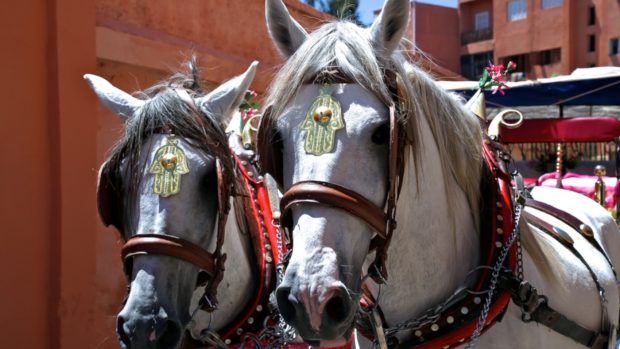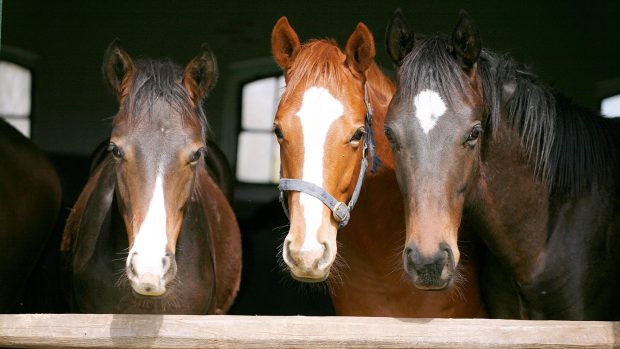In April we revealed SPANA had been chosen by readers to be H&H’s charity of the year. As part of our partnership with the charity, I was invited to see the work it does with working equines first hand. In July I travelled to Morocco and earlier this month I went to Ethiopia to spend three days with the country director Dr Nigatu Aklilu to see the charity's struggle to improve the welfare of the country's 2.5 million horses.
After a slightly exciting start to my first morning in Ethiopia — being kicked out of my hotel to make room for government officials — we headed to the market in Debre Zeit to see some of the horse and carts arriving.
The condition of the horses was horrendous and really shocked me. Nearly all of the horses were malnourished, suffering from cuts from badly fitting harnesses and the majority weren’t sound.
As well as their physical state, the way the horses were being handled was very upsetting. From whipping them one-second before gobbing them in the teeth to stop, to basic turning and backing skills — there was such a lack in basic understanding from their owners.
Travelling clinic
After spending time at the market we headed to the town of Adama, which is about 50km away from Debre Zeit. SPANA runs a mobile clinic here every week and by the time we arrived there were already more than 25 horses waiting to be seen by vets.
There was a real variety of what treatment horses were in need of from routine procedures — such as worming and teeth rasping — to serious malnutrition and severe cuts.
One of the most upsetting cases was a horse which was clearly starving (see picture below). When the owner was questioned as to why he was so thin, he explained that he hadn’t been feeding him because he hadn’t been working him. It later transpired that he had already lost another horse for the same reason.
The fact that horses are dying, slowly and painfully, purely because an owner does not understand the basic requirement for horses to be fed is enough to make you scream or cry.
After a long talk with Dr Nigatu, who explained that if the horse was properly fed he could be a good cart horse who could work for many more years, the owner agreed that he would feed the horse.
The complete lack of horse handling skills continued at the clinic. There just is no concept of treating horses slowly and patiently in order to get results.
I helped the vets hold some of the horses in order to try to keep them calm and get the treatments done. This very nearly resulted in me getting booted in the leg — it turns out Ethiopian horses are particularly adept at cow kicks!
Home visit
In the afternoon we visited one of the cart drivers at home to see where the animals where kept. He had four horses that were kept in stalls and were well fed (I expect they are some of the lucky ones).
One of the most interesting things about the home trip was that the owner bought malnourished or injured horses, used SPANA to help them recover, and then sold them on again. It was encouraging to see an owner understanding the importance of improving welfare.
End of day thoughts
Today has been a tough realisation of the massive battle SPANA faces to improve even the most basic conditions in Ethiopia. I usually consider myself fairly tough and even cold-hearted about these things (working in news tends to require this), but some of the cases I have seen today have really affected me.
Having been to Morocco with SPANA, I never expected horses to be in the same condition as they are in the UK. The role of working horse is of course very different from the sports horses which fill the pages in H&H! But the level of suffering that I saw was unacceptable and makes me even more impressed with the work SPANA does around the world.
How you can help
Although SPANA is working to educate Ethiopian owners to help themselves, their work relies on British owners supporting working equines worldwide.
➤ EZL can be treated for £20.
To donate to SPANA visit: www.spana.org/donate-now








